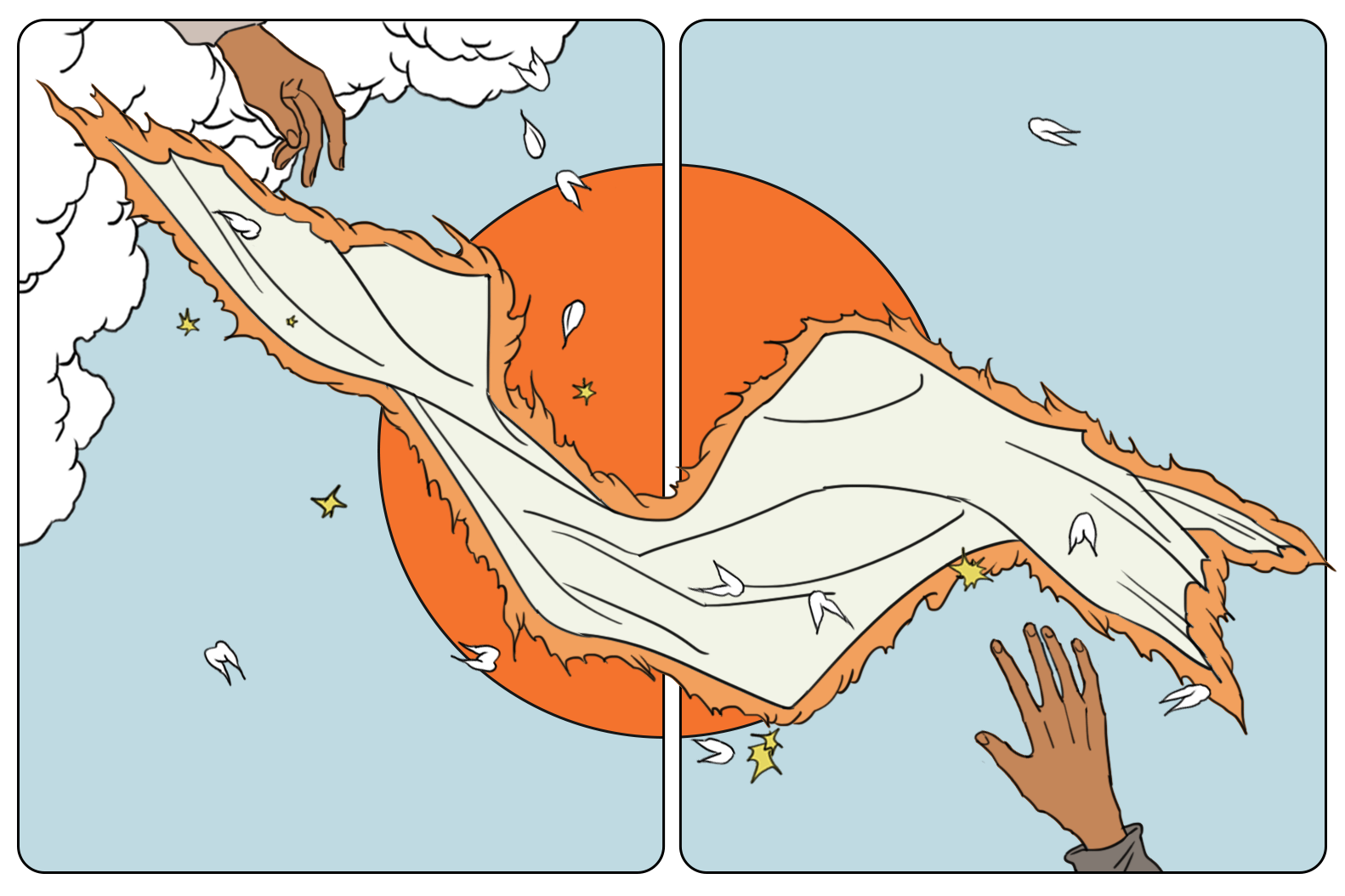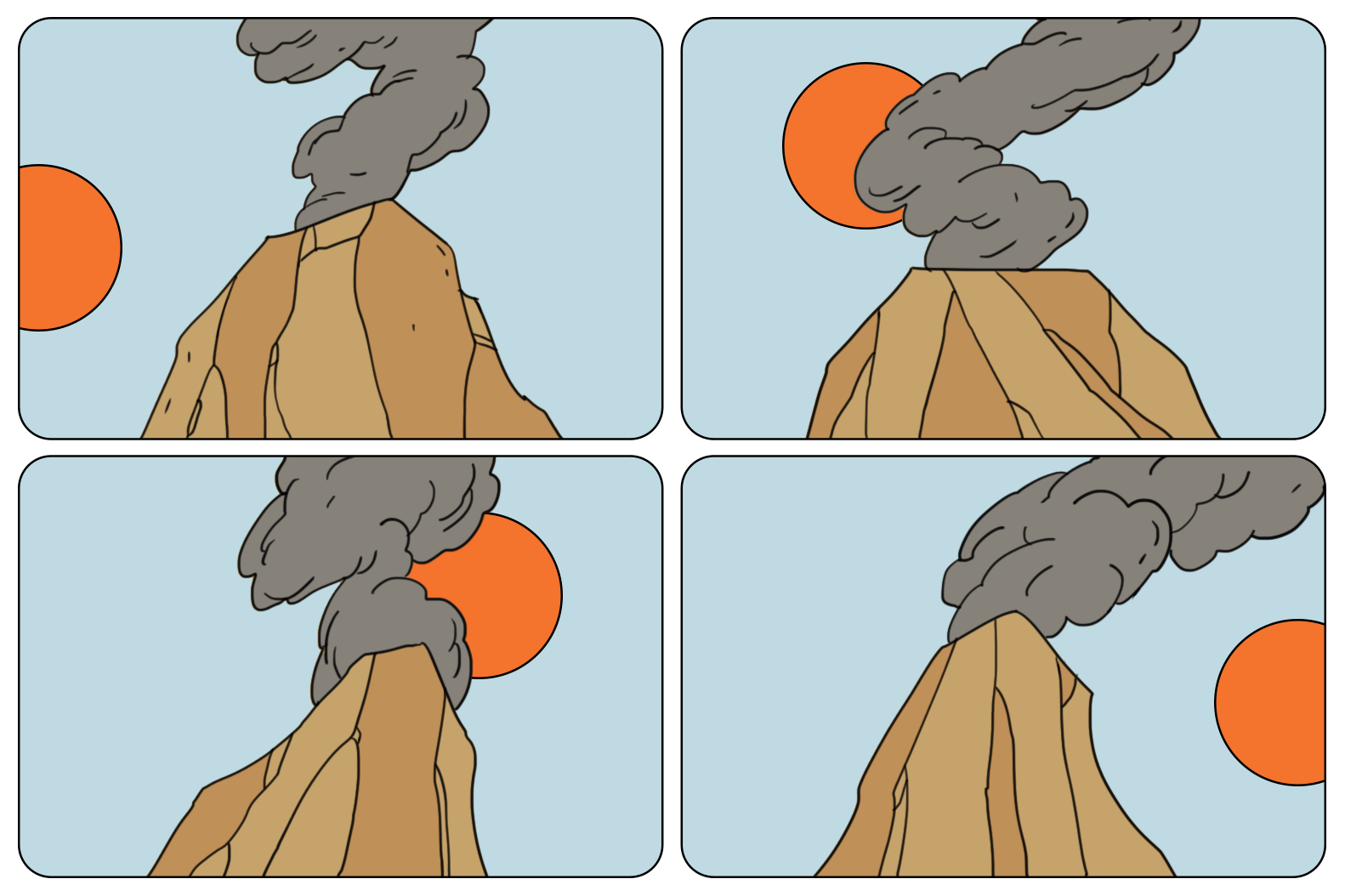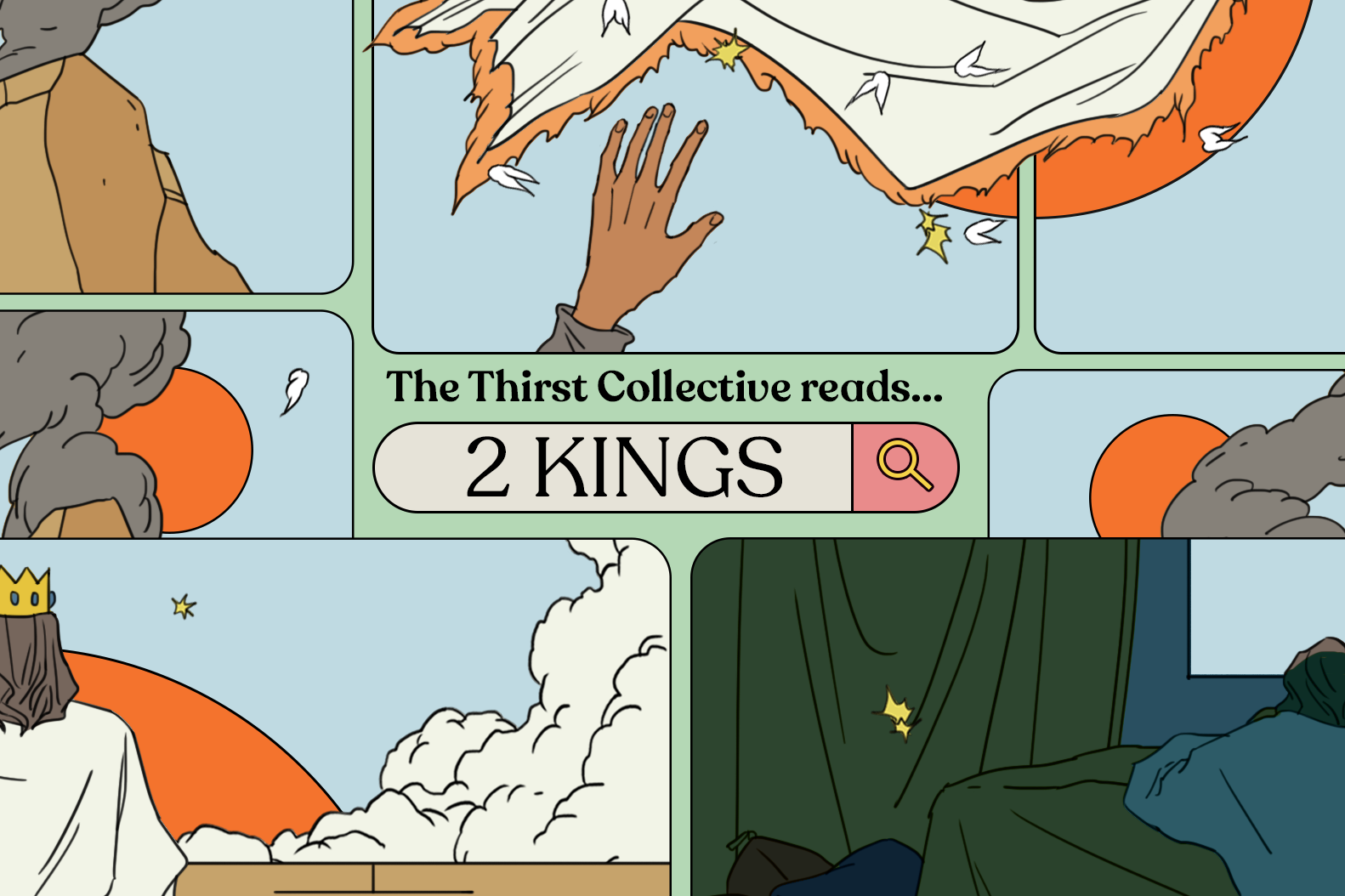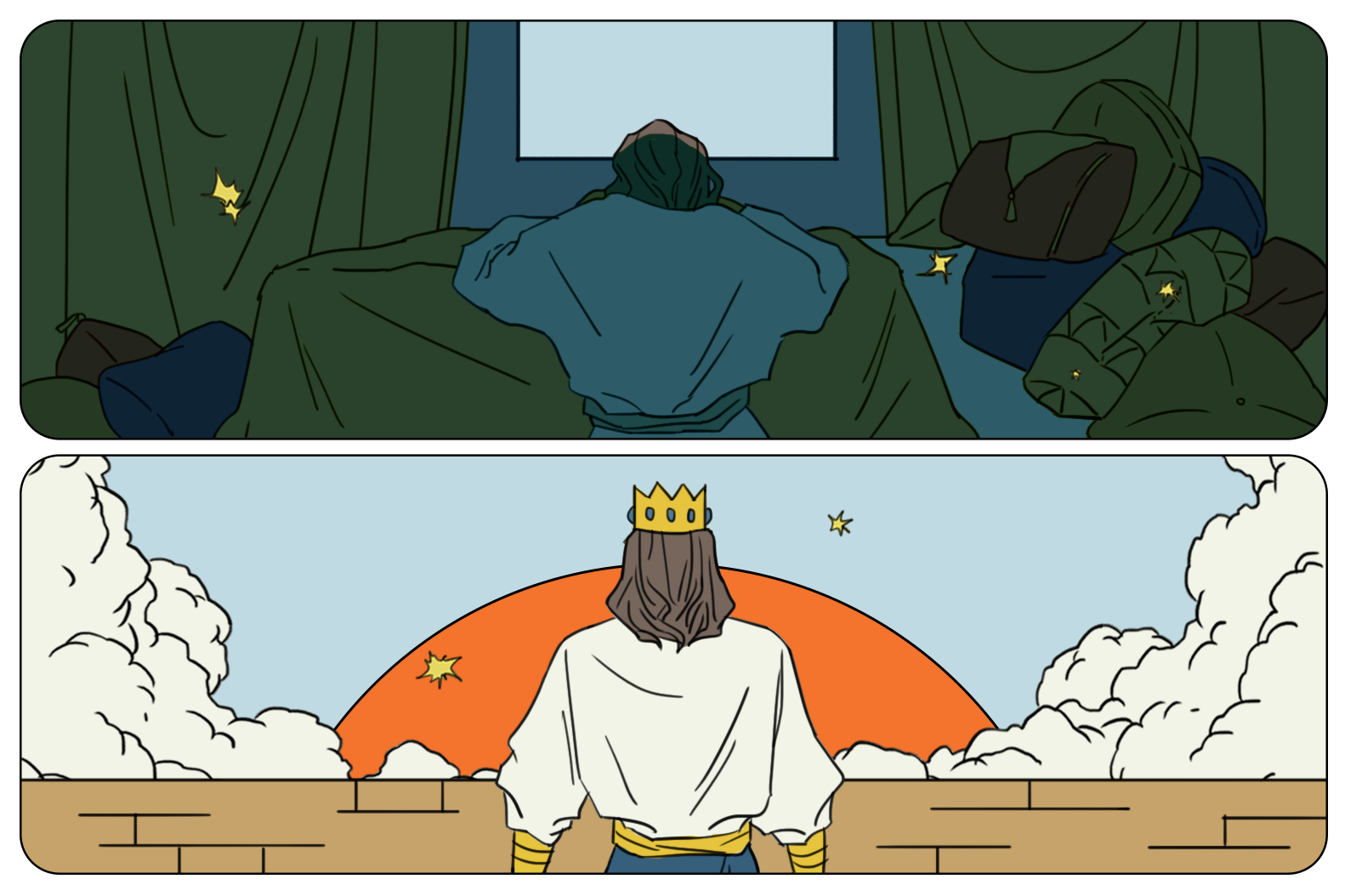Through 2024, every member of the Thirst Collective – Thir.st, Salt&Light, Stories of Hope, 还好吗 hhm.sg, Living Room, Collective Studio – has committed to reading the Bible from cover to cover.
We thought it’d be cool to pick out reflections and insights from our team’s readings to share with you. This time, dive deep into 2 Kings with us!
2 Kings 1: The Lord’s judgement on Ahaziah
Juleen, Salt&Light
“Now let my life be precious in your sight.” (2 Kings 1:14)
Interestingly, sight is a recurring theme in these three chapters.
When Elisha asked Elijah for a double portion of his spirit, Elisha said: “You have asked a hard thing; yet, if you see me as I am being taken from you, it shall be so for you, but if you do not see me, it shall not be so” (2 Kings 2:10).
And indeed Elisha did see the chariots and horsemen taking Elijah up in a whirlwind (and he was very excited about it too!).
The sons of the prophets saw that “the spirit of Elijah rests on Elisha” (2 Kings 2:15) even though a spirit is not easy to see.
The Israelites won their war against the Moabites because of the trick of the sun, where the Moabites “saw the water opposite them as red as blood. And they said, “This is blood; the kings have surely fought together and struck one another down. Now then, Moab, to the spoil!” They turned out to be mistaken, and were defeated.
We often take our eyesight for granted. But in today’s passages we see that what we consume with our eyes is actually important as part of God’s Kingdom plan. May we consecrate our sight unto the Lord, that God may be pleased rather than saying we “did evil in the sight of the Lord” (2 Kings 3:2).
2 Kings 2: Elijah taken to Heaven
Jinwee, Thir.st
“When they had crossed, Elijah said to Elisha, “Tell me, what can I do for you before I am taken from you?” “Let me inherit a double portion of your spirit,” Elisha replied.” (2 Kings 2:9)
This verse stood out to me. It is humbling to see how Elijah, as a leader, would want to do something for Elisha before he leaves him. A simple act but it speaks so much about his heart in wanting to make Elisha successful.
And I love Elisha’s boldness and confidence to ask for a double portion of Elijah’s spirit. He could have asked for other things but he knew the importance of the intangibles.

2 Kings 4-6: The life of Elijah
Shawn, Collective Studio
These chapters are packed with the many journeys and encounters of Elisha. It’s like I’m reading a part of the Bible entitled ‘The Adventures of Elisha, The Man of God.’
There is indeed much to learn from how the different people responded to God through Elisha and also about God Himself.
- The widow’s faith
- The Shunammite woman’s generous hospitality that led her to witness the miraculous restoration of life to her child
- God’s providence even in the midst of a famine
- Naaman’s humility and Gehazi’s greed
- God’s astounding protection over Elisha and undeserved grace and mercy towards the Syrians
What a great and awesome God we worship and serve indeed!
2 Kings 5: Naaman healed of leprosy
Zoe, Thir.st
“The prophet answered, “As surely as the Lord lives, whom I serve, I will not accept a thing.” And even though Naaman urged him, he refused.” (2 Kings 5:16)
Verse 16 showed me that Elisha didn’t do all of this so that he could glorify himself – he always credited all that he did back to God.
This reminds me of something I learnt at X4 Conference: “Do it because you want to do it unto Him.” He is the main event, not us.
Cheryl, 还好吗 hhm.sg
“In this matter may the Lord pardon your servant: when my master goes into the house of Rimmon to worship there, leaning on my arm, and I bow myself in the house of Rimmon, when I bow myself in the house of Rimmon, the Lord pardon your servant in this matter.” (2 Kings 5:18 ESV)
The works of God through Elisha are quite mind-blowing and bizarre at times.
Naaman had to fulfil the duties as the servant of his king. But even then, it’s quite amazing to see that he quickly understood and had the fear of the Lord to ask to be pardoned because he was a bit bo bian about this too.
2 Kings 8: The Shunammite’s land restored; Elisha weeps
Gabriel, Thir.st
In the Shunammite woman’s life, we see how faithful obedience and God’s perfect timing intertwine beautifully to display His glory. She returns home after the famine and shows up as a living case study precisely when the king is in the mood for story time with his boy Gehazi.
God was with her when her son’s life seemed to have been stolen, God was with her through the years of famine, and God was with her in the palace courts to rebuild her life.
We know God’s eye is on the poor widow, but it is also on the rich lady, who the world often thinks needs nothing. God is still relevant even to those who seem to have it all!

2 Kings 12: Joash repairs the temple
Christine, Salt&Light
“The high places, however, were not removed; the people continued to offer sacrifices and burn incense there.” (2 Kings 12:3)
Again and again, even as large swaths of idol worshippers are removed, not everything is removed and these seemingly little things carry on to snare the people.
A reminder to never dismiss the “little” sins in our lives. As I read through the OT, again and again I see that without the Holy Spirit, we are unable to live right and obey God. How thankful that we now have His Spirit with us, in us.
2 Kings 13: Jehoash
Weiming, Thir.st
When Elisha told king Jehoash to strike the ground — that was something interesting to me. If you just read it from the surface, it almost feels like the king got tricked by Elisha because he didn’t say how many times to strike the ground in the first place and had to suffer the consequences cause of something he didn’t know.
But when I changed the translation to another version — The Message — it said that the king struck the ground thrice and quit. This meant that he probably gave up striking the ground and it could’ve been due to unbelief or embarrassment at the act itself.
I realise this is also similar to our prayer and walk today. When we pray, we also do need to pray with belief and boldness and not think of how others would judge our prayer.
2 Kings 17: Israel exiled, Samaria resettled
Nicolette, 还好吗 hhm.sg
Chapter 17 shows how stubborn mankind can be. Despite persistent warnings given by the Lord, they refused to turn from their sin of idolatry.
But all these also show God’s patience and His faithfulness… He did not destroy them, as He had made a covenant with Noah.
2 Kings 18: Sennacherib threatens Jerusalem
Eunice, Thir.st
In Chapter 18, Rabshakeh’s tactic to instil fear and doubt into the people of Judah through his arguments parallels how vocal people/strangers/friends can be when against God/Christians, especially in today’s day and age.
But what’s admirable is that the people of Judah “kept silent and did not answer him” (2 Kings 18:36), despite Rabshakeh aggravating them.
A good reminder, that sometimes the best action is to keep silent and trust God. Trying to argue and reason with some people might lead to nowhere if they are not willing to listen.
There is a time and season for everything. When the time is right, God will use us to reach out to those who are ready to receive Him.
2 Kings 19: Isaiah prophesies Sennacherib’s fall
Ashley, Thir.st
“Have you not heard? Long ago I ordained it. In days of old I planned it; now I have brought it to pass, that you have turned fortified cities into piles of stone…But I know where you are and when you come and go and how you rage against me.” (2 Kings 19:25, 27)
Isaiah’s prophecy over Sennacherib’s fall in 2 Kings 19 is very sobering and a reminder to be careful to not fall away from the Lord. He already knows what we will do, where we are, and we cannot hide anything from Him. W
We need to acknowledge God in what we do and the successes we have unlike the people of Assyria who blasphemed Him.
Yet the Lord promises to restore and heal Judah, defending His own army and glory. The Lord honours His promises to those faithful to Him (in this case, David) and sends His angels to fight for us.
2 Kings 20: Hezekiah’s illness
Gracia Chiang, Salt&Light
The story of Hezekiah’s illness and the Lord extending his life by 15 years is an example of the mystery of God’s sovereignty and the power of prayer. Although the original plan was for him to die, the Lord saw his tears and decided to heal him instead.
Did God change His mind because of Hezekiah’s prayer? We will never know for certain. But what we know for sure is that the Lord sees and hears our prayers. And He responds to them in His time and way.
Joses, Thir.st
A commentary I read pointed out that when the Babylonian king came to visit Hezekiah because he heard Hezekiah was sick, there was an opportunity for Hezekiah to testify of his God’s power and talk about his miraculous healing.
Instead, he thought like a king and did what any world leader today would’ve done when hosting other leaders: show off why it’s worth forming an alliance with them.
But Hezekiah did not show off the God who delivered him from his life threatening illness. And even after Isaiah’s heavy words, he was relieved instead of repentant, which shows how self-centred and self-preserving he had become. A sad ending to the king who was one of the few who actually trusted in God throughout much of his rule.
2 Kings 22: The Book of the Law found
Nicole, Thir.st
“Hilkiah the high priest said to Shaphan the scribe, “I have found the Book of the Law in the house (temple) of the Lord.” Hilkiah gave the book to Shaphan, and he read it.” (2 Kings 22:8 AMP)
It seemed that the Book of the Law had been lost for some time, and perhaps that’s why the kings and the people had such messy religious systems, turning left and right/good and bad in an instant.
This really showcases the importance of us staying true to God’s ways — ways that will never change. If we don’t have God as our moral and social compass, then we will just be dictated by our own personal definitions of what’s good or bad. That is lawlessness.
2 Kings 24: Kings of Judah
Christina, Thir.st
“It was because of the Lord’s anger that all this happened to Jerusalem and Judah, and in the end he thrust them from his presence.” (2 Kings 24:20)
Heard this from Rev Joshua Sudharman – just like how fish flourish only in water and cattle flourish only on land, we flourish only in the presence of God.
God’s presence is our natural habitat that we were created for. Apart from Him we can do no good thing. To be thrust away from the presence of God is an extremely tragic thing. Don’t ever take God for granted.
- What struck you most through your reading of 2 Kings?
- How can you apply this biblical truth or principle to your daily life?










